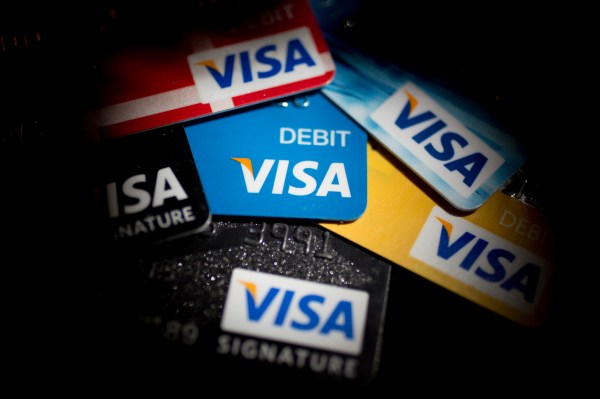As traditional financial institutions continue to mingle with the cryptocurrency world, Visa is the latest to expand its offerings in the space, this time working alongside crypto exchange FTX for a “long-term global partnership.”
The agreement between the two companies consists of offering FTX-branded Visa debit cards to FTX customers globally with a focus on rolling the plastic out in Latin American, European and Asian countries. The same product is currently available to U.S. customers after being announced at the beginning of this year.
“Crypto is community-driven; we know we can’t deliver the best crypto experiences on our own,” Cuy Sheffield, vice president and head of crypto at Visa, said in an email to TechCrunch. “With this partnership, we’re bringing together FTX, one of the largest and most innovative crypto platforms, with Visa and our network of 80 million merchant locations.”
Unlike crypto-focused credit cards that typically provide rewards to users, this debit card will link directly to users’ accounts so people can pay for items and services with their crypto balance from their FTX wallets. Cardholders will not face any administrative or processing fees for using the card.
That there are over 65 crypto platforms and exchanges that have partnered to issue Visa credentials, Alfred Kelly Jr., chairman and CEO of Visa, said during a Q1 earnings call. Other Visa crypto debit cards on the market come from exchanges like Crypto.com and Binance.
“We will continue to lean into the crypto space and our strategy is to be a key partner to provide the connectivity, scale, consumer value propositions, reliability and security that is needed for crypto offerings to grow,” Kelly said at the time.
Visa, a digital payments provider mainly known for its debit and credit card offerings, provides services for about 3.8 billion cards worldwide across over 200 countries, as of December 31, 2021.
FTX is the third-largest centralized cryptocurrency exchange by volume and is backed by trading companies like BlackRock and venture players including Coinbase Ventures, Sequoia Capital and Alameda Research, according to CoinMarketCap data.
Combining Visa’s huge payment acceptance reach and FTX’s customer base means there are a lot of potential customers. The FTX card will give holders the ability to make purchases at the millions of merchant locations globally that accept Visa, the press release stated.
“Through our partnership with Visa, we are continuing to see further expansion of the connection between digital assets and the global financial ecosystem,” Adam Jacobs, global head of payments at FTX, said in a press release.
And it’s true — these crypto cards are gaining traction. Kelly said in Visa’s Q1 earnings call that customers made $2.5 billion in payments with its crypto-linked cards during its fiscal first quarter of 2022.
In the past, FTX has partnered with a number of companies and sports teams like Paradigm Capital, Sequoia Capital, Circle, GameStop, Major League Baseball and the Golden State Warriors, as well as celebrities and athletes like Tom Brady, Shaquille O’Neal, Kevin O’Leary and Naomi Osaka, to name a few.
Visa has partnered with a range of companies and entities, too, from Uber to the FIFA World Cup, according to its website.
So what’s next? Aside from rolling the offering out to millions of potential users, the next phase is providing FTX-branded Visa debit cards to Europe by the end of the year, with plans to launch in other regions next year, the companies stated.
“At Visa, we believe that digital currencies will have a lasting impact on the future of financial services and money movement,” Sheffield said in a statement. Through debit cards linked to crypto exchange accounts, there will be greater flexibility and ease of use for people to use their funds, Sheffield added.
